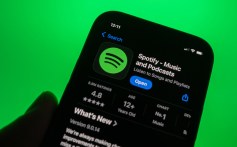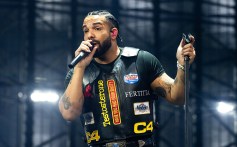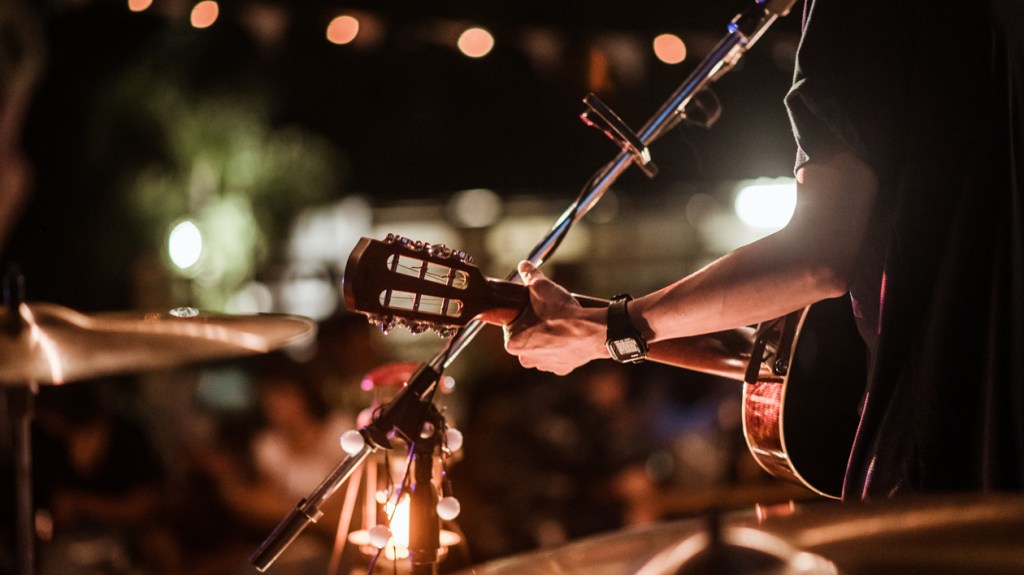payola
Trending on Billboard
Since subscribing to Spotify in 2023, Genevieve Capolongo says she’s mostly listened to “lesser-known artists” like Próxima Parada, Julia Cooper and Brusco. But she says the streamer’s recommendation tools keep serving her “mainstream, major-label tracks” by Drake, Zach Bryan and Justin Bieber.
According to her lawyers, that’s because Spotify was paid to do so.
Related
In a lawsuit filed last week, Capolongo claims the streamer’s Discovery Mode and editorial playlists amount to a “modern form of payola,” allowing labels to secretly boost their tracks with a “deceptive pay-for-play” program. She says she wouldn’t have subscribed if she knew that Spotify’s recommendations had been sold “to the highest bidder.”
The case is sometimes light on specifics, like citing unnamed “industry insiders” about alleged illicit payments or “disproportionate” rates of major-label music. Spotify, for its part, called the lawsuit “nonsense” and said it was “riddled with misunderstandings and inaccuracies.”
But it targets a program that has raised eyebrows for years — and comes at a time when Spotify has faced multiple accusations about manipulation on the platform. For more, go read our full story here.
You’re reading The Legal Beat, a weekly newsletter about music law from Billboard Pro, offering you a one-stop cheat sheet of big new cases, important rulings and all the fun stuff in between. To get the newsletter in your inbox every Tuesday, go subscribe here.
Other top stories this week…
DRAKE’S APPEAL – As Drake asks an appeals court to revive his lawsuit over Kendrick Lamar’s “Not Like Us,” I asked legal experts what his lawyers might argue — and whether it’ll work.
TAYLOR V. TRUMP? – Taylor Swift fans want her to sue the Trump administration after it used “The Fate of Ophelia” in a TikTok video. She probably could, but almost certainly won’t.
DISJOINT VENTURE – 10K Projects, the Warner-owned label founded by Elliot Grainge, is facing a lawsuit claiming it owes millions to Taz Taylor’s Internet Money Records under a joint venture.
FAST & FREE SONGS – How did New York City Mayor-elect Zohran Mamdani get clearance to use Bob Dylan’s iconic anthem “The Times They Are A-Changin’” in a campaign ad? It turns out he didn’t.
MJ LITIGATION – Michael Jackson’s estate is locked in a legal battle over abuse allegations from the Cascio siblings, who spent much of their childhoods with the King of Pop.
GORDIAN SLIPKNOT – Slipknot’s lawsuit against a group that has owned slipknot.com for decades has hit an unexpected snag: The shadowy entity has hired a lawyer and is fighting back.
ATLANTA ARREST – Rod Wave was arrested in Atlanta on weapon and drug charges. His lawyer — star defense attorney Drew Findling — says Wave was “unjustly profiled and unlawfully arrested.”
NAME REVEAL? – A “Jane Roe” woman who accused Garth Brooks of sexual assault is refusing to concede defeat in her fight to remain pseudonymous, filing an appeal to avoid disclosing her real name.
NOVEMBER LITIGATION – An ex-manager of Guns N’ Roses is suing the band, claiming it has unfairly blocked the release of his memoir by threatening to sue him and his publisher over a decades-old NDA.
Trending on Billboard
Spotify is facing a class action lawsuit claiming its Discovery Mode and editorial playlists are a “modern form of payola” that allow record labels and artists to secretly pay to promote their music.
The lawsuit, filed on Wednesday (Nov. 5) in New York, alleges that Spotify’s recommendation tools are a “deceptive pay-for-play” program, but that the streamer misleads consumers into trusting that they are neutral and based on personal musical tastes.
Related
“Spotify exploits that trust by marketing itself as a platform that offers organic music recommendations — whether through its algorithmic or curated playlists — only to secretly sell those recommendations to the highest bidder,” reads the lawsuit, obtained by Billboard.
The case was filed by a Spotify subscriber named Genevieve Capolongo, who seeks to represent “millions” of other users who were allegedly misled by Spotify’s offerings. Her lawyers say she used the platform’s personalization features for years, but “kept hearing the same major-label tracks” that “bore little resemblance to her listening habits.”
In a statement to Billboard, a spokesperson for Spotify called the accusations “nonsense” and pointed to its detailed explanation of the program.
“Not only do they misrepresent what Discovery Mode is and how it works, but they are riddled with misunderstandings and inaccuracies,” the company said. “Discovery Mode is a feature artists can use to flag priority tracks for algorithmic consideration in limited contexts: Radio, Autoplay, and certain Mixes. It doesn’t buy plays, it doesn’t affect editorial playlists, and it’s clearly disclosed in the app and on our website.”
Related
The new case is the latest to claim that major labels are buying placement on Spotify to boost their artists. The high-profile lawsuit filed by Drake over Kendrick Lamar’s “Not Like Us” included accusations that Universal Music Group used bots and payments to juice the song’s popularity on many platforms, including Spotify. Another case, filed earlier this week, claims that Spotify “turned a blind eye” to bots and other forms of fraudulent streams designed to inflate certain artists.
First unveiled in 2020, Discovery Mode allows artists and labels to get boosted on Spotify in return for accepting reduced royalties. It was initially met with scrutiny, including a Congressional investigation, over its similarities to payola, or the practice of secretly paying radio stations for airplay. But it has become a popular industry marketing tool around the release of new music.
Much of Wednesday’s lawsuit is focused on the extent to which Spotify discloses the exact parameters of Discovery Mode to its users. Though listeners are offered a link to an “About Recommendations” explainer when using it, Capolongo’s attorneys say that isn’t enough.
“Telling users that ‘commercial considerations may influence’ recommendations does not reveal which songs are being promoted commercially and which are being recommended organically,” her lawyers write. “Without that specificity, users cannot distinguish between genuine personalization and covert advertising.”
Related
The lawsuit also claims that Spotify’s editorial playlists, like the hugely influential Today’s Top Hits and RapCaviar, are also subject to pay-for-play. But it fails to offer any concrete examples of such payments, citing only unnamed “industry insiders” confirming that it happens and circumstantial evidence about the “disproportionate” rates of major-label music on such playlists.
In technical terms, the lawsuit claims Spotify’s conduct violated New York state law with deceptive practices and false advertising. It also claims Capolongo was fraudulently induced to subscribe and that Spotify was unjustly enriched by its behavior.
In more straightforward language, Capolongo says she simply wouldn’t have paid for Spotify if she had “known the truth” about the service: “That Spotify’s playlists and recommendations are shaped by undisclosed pay-for-play arrangements and hidden commercial incentives, not by her listening history alone.”
The Federal Communications Commission (FCC) is scrutinizing iHeartMedia’s upcoming iHeartCountry Festival in Austin as part of an investigation into whether radio stations have been offering airplay to artists in exchange for free shows.
In a lengthy letter sent Monday (Feb. 24) to iHeartMedia chairman/CEO Robert Pittman, FCC chairman Brendan Carr — who was appointed to the FCC board in 2023 by former President Joe Biden and promoted to chairman via an executive order from President Donald Trump on Jan. 21 — said he “want[s] to know whether iHeart is effectively and secretly forcing musicians to choose between, one, receiving their usual, ordinary, and full scale compensation for performing or, two, receiving less favorable airplay on iHeart radio stations.”
Carr went on to note that “certain owners of federally licensed radio stations are effectively compelling musicians to perform at radio station events or festivals for free (or for reduced compensation) in exchange for more favorable airplay,” a practice he warned violated federal bans on practices like payola.
Trending on Billboard
The letter follows a previous letter sent by U.S. Senator Marsha Blackburn (R-Tenn.) to the FCC earlier this month in which she asked the agency to take action to prevent the alleged practice, claiming it was “critically impacting Tennessee’s content creators.” The FCC subsequently issued an enforcement advisory in which it warned that promising radio play in exchange for free concerts would break federal law. The agency further said it would “consider investigating substantive allegations of payola that come to its attention.”
Traditionally, payola investigations have dealt with music labels and publishing groups paying radio stations to illegally promote commercial music and boost album sales. In 1959, popular radio personalities like Alan Freed were investigated by both the U.S. House and Senate for accepting cash “consulting fees” to play songs on the radio as requested by the shadowy radio promotion industry. In the 1970s, the investigation expanded to include the Italian mafia, whom the FCC accused of using drugs like cocaine for payola. In the 1990s, former NY District Attorney Elliot Spitzer won payola settlements against Sony, BMG and Warner Music, and won a civil lawsuit against Entercom.
Carr’s letter to iHeartMedia hints that the federal government may adopt a novel legal theory that radio promotion concerts, held by large FM radio stations in markets across the U.S., could be a form of payola. Specifically, Carr singles out the May 3 iHeartCountry Festival in Austin, Texas.
Carr’s three-page letter to iHeart included eight lengthy questions he asked Pittman to answer within 10 days. Among other things, Pittman is requesting a list of all artists playing iHeartCountry Festival at Austin’s Moody Center, how much they would normally be paid for a concert appearance and whether any of the artists “will receive better or worse airplay on iHeart radio stations based on their participation in the Festival or the compensation they receive for performing at the Festival.”
In the music business, artists’ appearances are typically delineated into two categories: promotional, or media, appearances, when an artist is promoting a new venture like an album or a film and appears on a talk show to promote that project; and paid appearances, when an artist performs or showcases their talents to audience members who have typically paid some type of admission fee. Artists aren’t usually paid for promotional appearances, and radio concerts have long been categorized by radio stations as promotional in nature and typically do not include payments.
Carr continued that he wants to learn more about the upcoming iHeart concert so that he can get “a real-world example of how such events are put together—including artist solicitation and compensation—and the procedures that are in place to ensure compliance with the relevant statutes and regulations.”
Officials with iHeartMedia responded to the letter in a statement, noting that the company looks forward to “demonstrating to the Commission how performing at the iHeartCountry Festival — or declining to do so — has no bearing on our stations’ airplay, and we do not make any overt or covert agreements about airplay with artists performing at our events.”
The iHeart statement goes on to say, “The iHeartCountry Festival provides the same kind of promotion that that we see with artists on talk shows, late night television, the Super Bowl and in digital music performances and events: the promotional value to the artists is the event itself, and, in our case, is unrelated to our radio airplay.”
This lineup at this year’s iHeartCountry Festival lineup, which is slated for May 3, includes Brooks & Dunn, Thomas Rhett, Rascal Flatts, Cole Swindell, Sam Hunt, Megan Moroney, Bailey Zimmerman and Nate Smith.
U.S. Senator Marsha Blackburn (R-Tenn.) is asking the Federal Communications Commission (FCC) to take action to prevent radio stations from offering airplay to artists in exchange for performing free shows.
In a letter sent to FCC chairman Brendan Carr on Thursday (Jan. 30), Blackburn decried the alleged practice she says is “critically impacting Tennessee’s content creators,” branding it as “payola” — the practice of accepting payment in exchange for radio airplay without disclosing it.
“As you know, the FCC considers payola a violation of the Sponsorship Identification Rules,” Blackburn wrote. “From what we have learned, it appears that to sidestep these restrictions, radio stations and networks have adopted a troubling new tactic. Instead of demanding cash or lavish perks from record labels in exchange for airplay, they now pressure artists to perform ‘free radio shows’ — also referred to as ‘listener appreciation shows’ or ‘charitable concert events.’”
Trending on Billboard
She adds that radio stations “often receive the financial benefit of these shows through ticket sales, sponsorships, and other income while the artists and record labels frequently absorb the expense.”
Blackburn claims she has heard from artists in the industry who say “it is not unusual for them to perform anywhere from 10 to 50 such shows in any given year.” She adds that artists early in their careers tend to perform more but that “those that have had more success” are still often expected to perform free shows in exchange for airtime.
“This practice is exploitative and should not be tolerated,” the letter continues. “Federal law and FCC rules prohibit radio stations from receiving undisclosed compensation for broadcasting songs, and this principle must extend to free performances for radio stations and networks. Artists should not be extorted into providing free labor in exchange for airplay. I urge you to take swift action to end this abuse and protect our music community.”
A longstanding issue in the music industry, payola was first regulated by Congress in 1960 and later became the subject of a mid-2000s investigation by the New York Attorney General’s office that led to all three major labels paying millions in penalties and agreeing to reforms, including a vow not to use “commercial transactions…in an explicit or implicit exchange, agreement, or understanding to obtain airplay or increase airplay,” among other concessions.
Despite this, there has been ongoing concern in the industry and beyond about the continued effectiveness of these regulations. In 2019, then-FCC commissioner Michael O’Rielly asked the Recording Recording Industry Association of America (RIAA) to investigate allegations of payola. In 2022, several music executives met with the New York Attorney General’s office to complain that some independent promoters hired by labels had continued engaging in the practice.
According to Blackburn, whose state’s capital city of Nashville is the heart of the country music business, the alleged free concerts are simply payola in another form, writing that there’s “often an implicit suggestion that declining to perform could result in reduced airplay” — what she characterizes as “forced quid pro quo.”
You can read Blackburn’s letter in full below.
The Honorable Brendan Carr
Chairman
Federal Communications Commission
45 L Street, NE
Washington, DC 20554
Dear Chairman Carr, Thank you for your leadership at the Federal Communications Commission (“FCC”). I am writing to bring attention to an issue critically impacting Tennessee’s content creators, particularly its songwriters and music community.
Federal law prohibits radio stations from accepting payment for airtime without disclosing the transaction—a practice commonly known as “payola.”1 As you know, the FCC considers payola a violation of the Sponsorship Identification Rules. 2
From what we have learned, it appears that to sidestep these restrictions, radio stations and networks have adopted a troubling new tactic. Instead of demanding cash or lavish perks from record labels in exchange for airplay, they now pressure artists to perform “free radio shows”— also referred to as “listener appreciation shows” or “charitable concert events.”
We have heard the new scheme works in this manner: radio stations and networks offer more airtime for an artist’s songs if the artist performs a free show. There is often an implicit suggestion that declining to perform could result in reduced airplay. Radio stations and networks often receive the financial benefit of these shows through ticket sales, sponsorships, and other income while the artists and record labels frequently absorb the expense.
This forced quid pro quo applies to essentially all artists, regardless of their level of success. Artists in the industry have told me that it is not unusual for them to perform anywhere from 10 to 50 such shows in any given year. Those just starting out in their career will often perform more, while those that have had more success will have to perform fewer, but they will still be expected to do them.
This practice is exploitative and should not be tolerated. Federal law and FCC rules prohibit radio stations from receiving undisclosed compensation for broadcasting songs, and this principle must extend to free performances for radio stations and networks. Artists should not be extorted into providing free labor in exchange for airplay.
I urge you to take swift action to end this abuse and protect our music community. Thank you for your attention to this pressing matter.
Sincerely,
Marsha Blackburn
United States Senator
-
Pages

 State Champ Radio
State Champ Radio 




